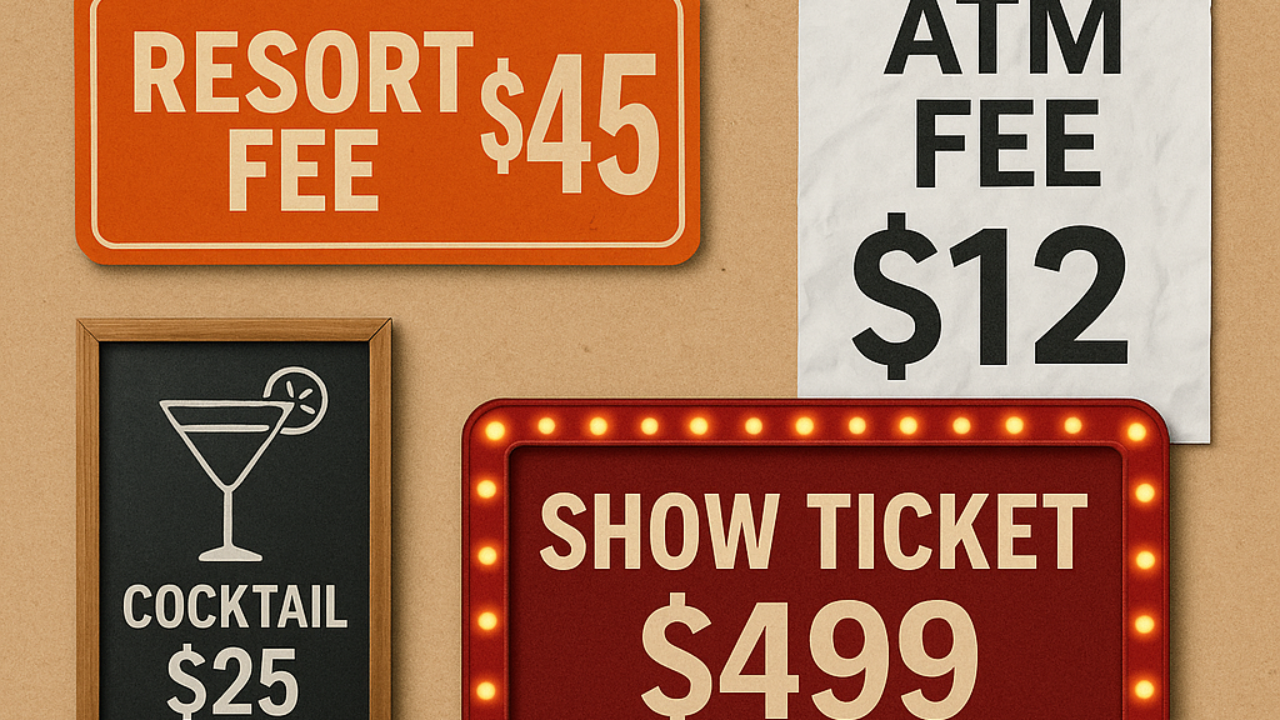
Vegas Rolled the Dice—and Priced Out the Player
May 31, 2025The attached Audio file includes some additional commentary.
Vegas Backed Itself Into a Corner
For decades, Las Vegas was the undisputed capital of entertainment value. Tourists came in droves—ready to spend, ready to play, and ready to get a bargain while doing it. Buffets were cheap, hotel rates were low, and there was a certain thrill in stretching a few dollars across a full day of fun. But somewhere along the line, that value proposition changed. And now, it seems, the city is feeling the consequences.
Where Did Everybody Go?
Recent reports have pointed to a noticeable dip in Las Vegas visitor numbers, and while the headlines mention fewer international tourists and some post-pandemic volatility, the real issue runs deeper. We’re seeing a shift in how people think about their money—especially when it comes to discretionary spending. Travelers are more cautious. They’re more budget-conscious. And Vegas, quite frankly, isn’t making a strong case for their dollars anymore.
The Value Is Gone
Let’s be honest—Vegas has been nickel-and-diming people for years. Resort fees snuck in quietly and never left. Parking used to be free—now it's a line item on your credit card. Coffee is $9. A simple ATM transaction can cost you $12. You don’t get much change from a twenty-dollar bill, even if all you did was grab a quick bite and a drink.
And speaking of food: the classic food court is all but extinct. In its place, you’ll find “Food Halls”—a trendy name for high-priced dining stalls. Yes, the presentation is better. Yes, the names are hip. But you're still paying $28 for a burger, fries, and soda. That’s not value. That’s markup.
Gaming Has Lost Its Shine
Even the casino floor—once the heartbeat of Vegas excitement—feels different. Table minimums are higher, especially on the Strip. Blackjack payouts have been reduced. Craps odds are tighter. And slot machines? They’re no longer designed for longevity—they're built around flashy themes and big jackpots that rarely hit, offering less play for your buck.
For many, gambling isn’t about winning big—it’s about playing big, for as long as possible. That simple joy of stretching a hundred-dollar bill over a few hours of entertainment is becoming harder to find.
A City at Odds with Its Identity
Vegas always thrived because it knew its audience. It gave people the illusion of luxury and excess, while offering affordable indulgence. That balance is gone. Now, visitors are starting to wonder if they’re being hustled more than they’re being hosted.
The city's obsession with monetizing every square inch has eroded the sense of freedom and escapism that used to define a Vegas trip. It's no longer “what happens in Vegas stays in Vegas”—it's more like “what happens in Vegas comes with a surcharge.”
Backed Into a Corner
In chasing profits and premium pricing, Vegas may have backed itself into a corner. Because once people start to feel like they’re not getting their money’s worth, they stop coming. And when they stop coming, the whole ecosystem suffers—hotels, restaurants, dealers, entertainers, ride-share drivers, and everyone in between.
Las Vegas isn't just competing with other casino towns. It's now competing with cruise lines, all-inclusive resorts, and budget-friendly travel destinations that are often cheaper, more transparent, and more rewarding.
What Happens Next?
Vegas has always been resilient. But the next chapter will require introspection. It may be time for the city to remember what made it great in the first place: accessibility, generosity, and the ability to make everyone—no matter their budget—feel like a high roller.
Until that happens, many will continue to stay home, watch the live streams, roll the dice on an app, or head to destinations where $9 coffee is still considered absurd.

